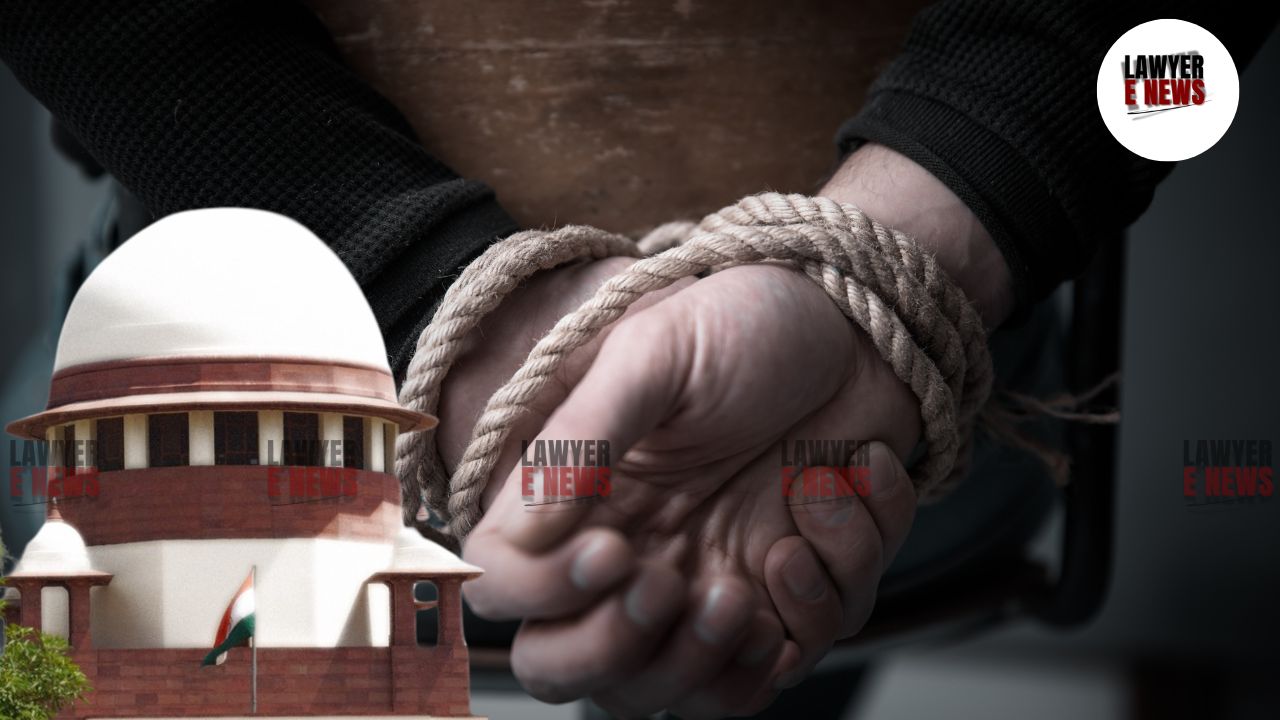-
by Admin
15 February 2026 5:35 AM



Supreme Court overturns trial court and High Court judgments citing grave procedural lapses and unreliable evidence. In a significant judgment, the Supreme Court has acquitted Gaurav Maini and others accused in a high-profile kidnapping case. The court, in its detailed ruling, dismantled the prosecution's narrative, highlighting numerous procedural lapses and the unreliability of the presented evidence. The judgment, delivered by a bench comprising Justices B.R. Gavai and Sandeep Mehta, declared that the prosecution's case was entirely fabricated.
On April 2, 2003, Sachin Garg, a minor, was allegedly kidnapped while returning home from a badminton game in Panchkula. The kidnappers demanded a ransom of Rs. 1 crore for his release. Sachin was released on April 3, 2003, after the ransom was reportedly paid. The police investigation led to the arrest of Gaurav Maini, Gaurav Bhalla, Munish Bhalla, and Sanjay @ Sanju. They were tried and convicted by the Additional Sessions Judge, Panchkula, and their convictions were upheld by the Punjab and Haryana High Court.
The Supreme Court observed that the initial reporting of the case was dubious. The FIR was registered on April 15, 2003, based on a secret information rather than a direct complaint from the victim's family. This raised serious questions about the authenticity and motivations behind the prosecution.
The court noted the inconsistencies and improbabilities in the testimonies of the star witnesses, Mahesh Garg and Sachin Garg. The prosecution failed to explain why the family did not report the incident to the police immediately after Sachin's return. The victim's testimony was also found unreliable due to contradictions.
The court criticized the identification process of the accused, particularly highlighting that Sachin Garg had only identified Gaurav Bhalla and no Test Identification Parade (TIP) was conducted for the others. The identification in court was deemed insufficient and unreliable.
The Supreme Court found that the prosecution's evidence regarding the recovery of the ransom money was flawed. The investigating officer's handling of the recovered currency was questionable as the money was allegedly returned to Mahesh Garg without any court order.
The court emphasized that the procedural lapses in the investigation undermined the credibility of the prosecution's case. The failure to record timely statements, conduct proper identification parades, and the improper handling of recovered evidence were critical errors.
The court concluded that the entire prosecution case appeared to be a fabrication, possibly motivated by extraneous reasons. The trial and High Courts failed to scrutinize the evidence critically, leading to wrongful convictions.
Justice Sandeep Mehta remarked, "The entire story of the prosecution is nothing but a piece of fabrication. There is no iota of truth in the prosecution story, what to talk of proof beyond all manner of doubt which establishes the guilt of the accused."
The Supreme Court's judgment is a stark reminder of the importance of due process and the need for meticulous evidence handling in criminal cases. The acquittal of the accused underscores the judiciary's role in safeguarding the rights of individuals against wrongful convictions. This landmark decision is expected to have significant implications for future criminal investigations and trials.
Date of Decision: July 09, 2024
Gaurav Maini & Ors. v. The State of Haryana
